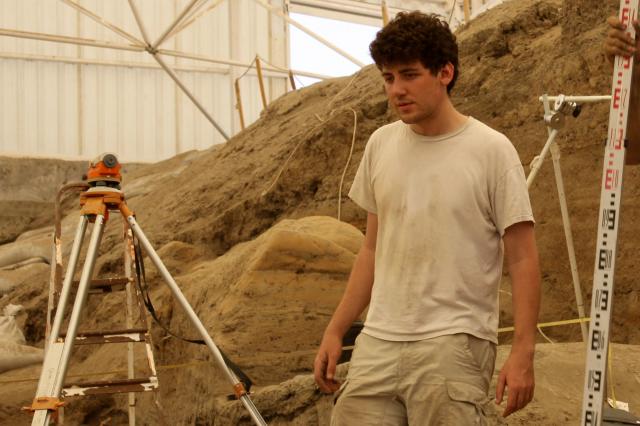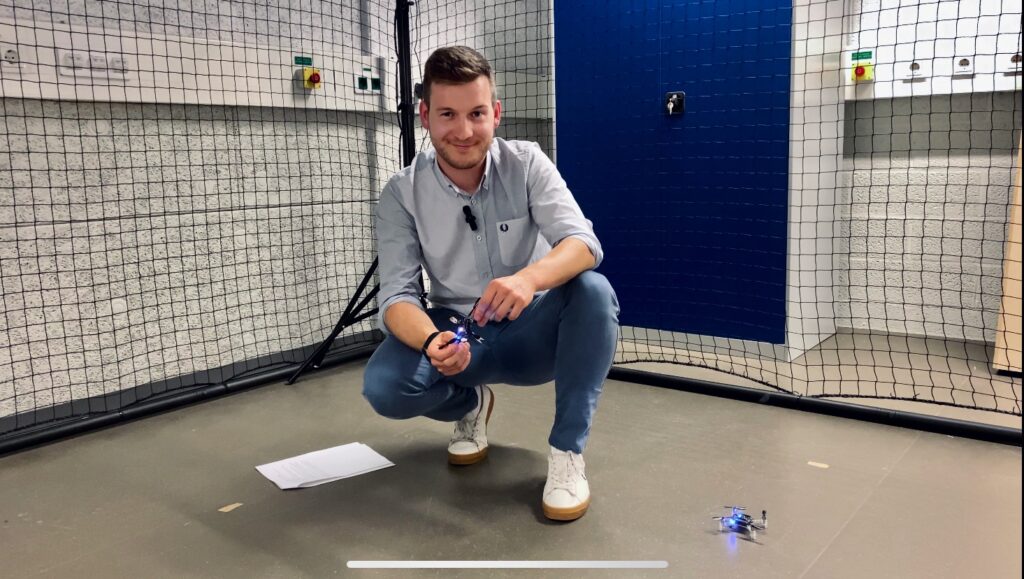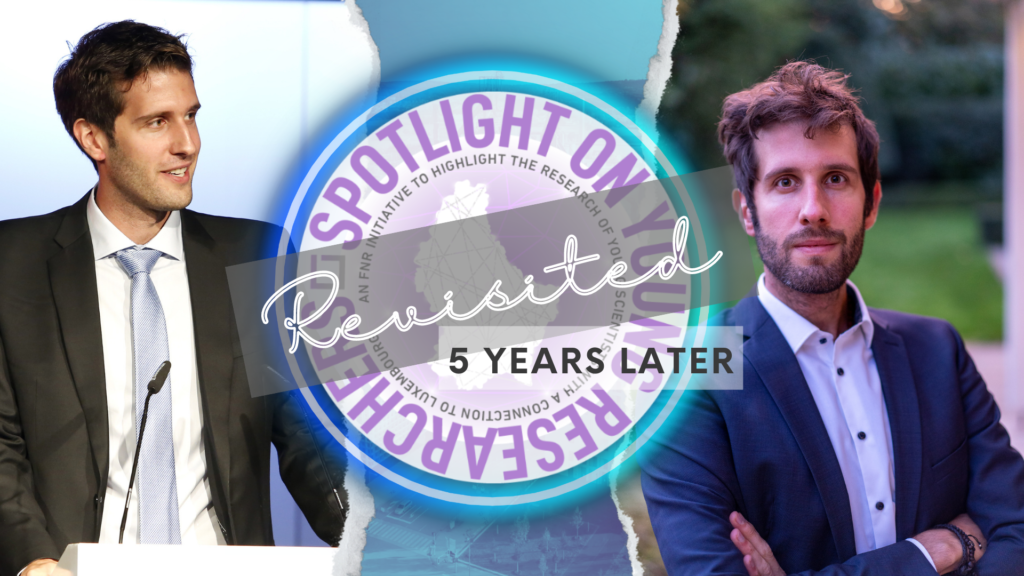
Archaeologist and trained anthropologist Maxime Brami works on uncovering the origins and spread of agriculture, and has just landed a sought-after Marie Skłodowska-Curie Individual Fellowship. We speak to the Luxembourg national about what it’s like to be an archaeologist in academia, the collaborative nature of the field and why archaeologists have a certain responsibility.
You’re a postdoc in the field of archaeology, a vast field. What is the focus of your studies?
“I am a prehistoric archaeologist working on the origins and spread of agriculture – an economic complex invented around 12,000 years ago in the Near East, which also included sedentism and (later) pottery.
“The agricultural (or neolithic) revolution is an important milestone: for over 99% of human history, humans have been extracting food from nature, hunting or fishing and gathering wild plants; then, rather abruptly, some communities in Southwest Asia started cultivating plants and herding animals – thus producing food and freeing themselves from (over-)reliance on nature.
“This process seems to have coincided with the emergence of the first villages in Southwest Asia and of monumental structures, which some have called ‘temples’ (e.g. Göbeklitepe in Southeast Turkey).
“What I am especially interested in finding out is how this economic complex dominated by agriculture, once formalized into a coherent pattern of existence, became portable and spread across large stretches of Europe, Asia and Africa, eventually giving rise to the urban, industrial and post-industrial societies in which we live today.”
What does an archaeologist like you do on a daily basis?
“Research in archaeology is very diverse. It is hard to fall into a routine. I can spend days in libraries exploring obscure corners of archaeological historiography – painstakingly disentangling the various threads that make up historical concepts, such as the neolithic ‘revolution’ (V. Gordon Childe 1936). Writing is a very important aspect of my work and takes up much of my time.
“In the summer, I work on archaeological excavations in Turkey – essentially doing manual labour or supervising excavations, for instance at the 10,500-year old village of Boncuklu near Konya.
“A dig is a little like a film set. You get to meet people from very different backgrounds, each with different specializations and interests. Everyone has a role to play and collectively we try to discover something new over a period of several weeks or months – a task which can feel daunting at first. You sometimes hear stories of epic archaeological surveys or excavations, where everything went wrong but the final product was great – the Apocalypse Now or Waterworld of archaeology.”
Are there any challenges facing archaeology?
“The history of archaeology as a discipline is fascinating and disturbing at the same time. It was used to legitimize the worst excesses of 19th and early 20th century nationalism in Europe, for instance the claim of superiority of the Aryan ‘race’, which some thought to derive from a primitive homeland (Urheimat) in Central Europe.
“On the other hand, archaeology provides glimpses into societies that are far from our own and confronts us (if we are prepared to see it) with some uncomfortable truths regarding the longevity of civilizations and the unilinear march to progress.
“More specifically, a major challenge in archaeology is how to integrate different scales of analysis, from the micro-history of a 9th millennium BC household for instance to the grand narrative of farming expansion.”
Why did you choose to become a researcher in archaeology?
“Archaeology borrows a lot from other disciplines (social and physical anthropology, history, geography, botany, zoology, geology etc.). To be an archaeologist means accepting that you cannot do everything by yourself, though you must have an overview.
“Archaeology is ipso facto collaborative and this is one of the things that attracted me to it in the first place. I was trained both as an archaeologist and as an anthropologist. The interaction between these disciplines has been historically complicated. There is still a struggle between the natural sciences and the humanities for who controls the study of the human past.
“Archaeology does not offer many career options. Essentially, there are two: one can either work in academia or in commercial archaeology (archaeologists are called in to do rescue work every time a building is constructed). I chose academic research because of the freedom it gives.
“I feel especially privileged that I have always been able to pursue my own research interests, but even in academia, freedom of research is not a given”.

Have you set goals for what you want to achieve as a researcher? Do you feel a sense of duty to ensure archaeology is not politicised again?
“Research in archaeology does not bring any immediate benefit to society; it is easy to dismiss it as just a ‘hobby’ or as a scientific niche. Yet 20th Century political history shows that who controls the past, even the remotest past, controls the future (to paraphrase George Orwell).
“The Nazis for instance used the myth of the Indo-Germans to stake claim over vast swathes of Eurasia. Himmler and his cronies used the 29,500-year old Venus of Willendorf to suggest that the ‘Slavic hips’ had an African origin, and thence to legitimize the racial policy of Nazi Germany.
“Fortunately archaeology is less political today. However, archaeologists do have a huge responsibility to ensure that the human past is never misappropriated again. As a researcher I strive to raise awareness of this historical responsibility and to do better science.“
“For me as an individual, archaeology is a way to make sense of the world in which I live. Things we take for granted, such as the structure of our societies or our practices, become far less obvious when viewed in the light of ancient history and prehistory.”
Soon you will be moving from your current position as Library Fellow of the Royal Anthropological Institute of Great Britain and Ireland to Germany for your research, can you give more details?
“In October 2018, I will be joining the Palaeogenetics Group of Johannes Gutenberg-Universität Mainz with a Marie Skłodowska-Curie fellowship integrating ancient DNA with high-resolution archaeological data and hypotheses, to explore the underlying demographics of farming expansion.
You explained that as an archaeologist the main career choice is between academia and working commercially. As you work in academia, you rely on grants – how has your experience been so far?
“There are very few grants available to archaeologists in Europe; yet we depend on them to do research and be independent. The FNR generously supported my PhD at the University of Liverpool (2011-2014) and my Postdoc at the Austrian Academy of Sciences (2015-2017). This was of tremendous help, especially at the start of my career. And now I have recently been awarded a 2-year Marie Skłodowska-Curie individual fellowship (2018-2020), which I will be conducting in Mainz, not too far from Luxembourg.
So even though you are a Luxembourg national who has always lived abroad, links to your home country still appear in and around your work.
“Indeed. The Palaeogenetics laboratory in which I will be moving has identified the Loschbour individual, one of the final Holocene hunter-gatherers found on the territory of Luxembourg, and participated in the analysis of his genome. Through the Danube-Rhine-Moselle corridor, Luxembourg has experienced the same historical influx of people and innovations as the rest of Europe – for instance agricultural expansion in the 6th millennium BC.
“Research today is European and benefits from open borders. In this respect, Luxembourg has major assets: it is right in the centre of Europe, multilingual and open to different research traditions. At the same time it has managed to preserve its own distinct identity.”




